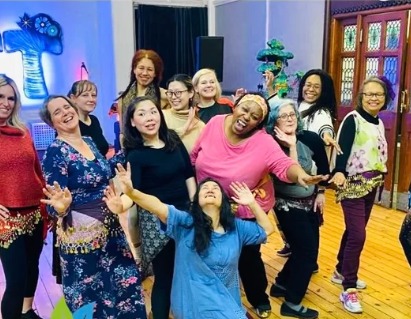Across continents, from the heart of Nottingham to the neighborhoods of Nairobi, grassroots women’s groups are redefining what it means to lead, care, and build community. These collectives embody the transformative power of sisterhood—women coming together to address shared social, economic, and emotional challenges with creativity, empathy, and purpose.
While separated by geography, women in both cities mobilize around similar issues: social isolation, limited access to opportunities, gender-based inequality, and underrepresentation in decision-making spaces. Yet, their responses—rooted in solidarity and local wisdom—show that meaningful change often begins with connection, trust, and shared vision.

Sisterhood and Support in Nottingham
In Nottingham, women’s groups have long been the backbone of community resilience. The Nottingham Women’s Centre, founded more than 50 years ago, remains one of the oldest and most active feminist community hubs in the UK. It offers a safe and inclusive space for women of all backgrounds to access mental health support, training programs, advocacy services, and social networks. Its community model centers on empowerment through belonging—helping women heal, learn, and thrive together.
Beyond services, Nottingham’s women’s groups have created a cultural and creative renaissance around female connection. When Women Gather, for instance, brings women together through expressive arts—music, dance, storytelling, and theatre—to combat isolation and enhance mental well-being. Through collaborative workshops and performances, women rediscover confidence, identity, and joy, proving that art can be both therapy and activism.

Similarly, the Women’s Organisations Network unites various women’s associations across Nottingham, fostering collaboration, mentorship, and joint advocacy. This networked model amplifies local voices and strengthens partnerships with civic institutions, helping ensure that women’s concerns shape local policy. Digital communities such as the Nottingham Muslim Women’s Network and groups like Women in Tech Nottingham further demonstrate the diversity of women’s leadership in the city—from cultural dialogue to digital inclusion.
Through workshops, social meetups, and mental health support circles, Nottingham’s women-led initiatives have become lifelines for those navigating challenges such as unemployment, migration, motherhood, or recovery from trauma. These efforts have been bolstered by local initiatives supported by the UK Shared Prosperity Fund, ensuring sustained investment in community-led women’s empowerment projects.
Empowerment and Enterprise in Nairobi
Across the globe, Nairobi’s grassroots women’s groups mirror the same spirit of solidarity—turning collective challenges into shared strength. In Kenya’s capital, local women’s cooperatives, savings groups, and community-based organizations (CBOs) are essential drivers of economic empowerment and social transformation.
These groups often begin as small self-help circles but evolve into networks that tackle larger issues—poverty reduction, gender-based violence, and access to education. Through microfinance initiatives, vocational training, and cooperative savings, Nairobi’s women are creating opportunities for self-sufficiency. Many of these groups also operate as informal social safety nets, providing childcare, healthcare access, and psychosocial support in neighborhoods where government resources are limited.
For example, community groups in Kibera and Mathare have successfully launched local savings and loan cooperatives that enable women to start small enterprises in tailoring, catering, or urban farming. These initiatives not only generate income but also strengthen women’s leadership and decision-making in their communities.
Grassroots organizations like Shining Hope for Communities (SHOFCO) and Ghetto Classics also integrate young women into leadership through arts, education, and social entrepreneurship, proving that empowerment can come from both economic independence and cultural expression.
Nairobi’s women-led movements frequently partner with international and diaspora organizations, linking local solutions to global gender equality goals. By merging practical training with advocacy, they champion both empowerment and systemic change.
Shared Lessons: Building Bridges Through Sisterhood
Despite different contexts, Nottingham and Nairobi’s grassroots women’s groups demonstrate striking parallels. Both prioritize healing, economic independence, and representation, using collective action to counter marginalization. They build social capital—the trust, reciprocity, and solidarity that underpin thriving communities—and transform that into tangible progress.

Sisterhood, in this sense, is more than emotional support; it is an engine of community development. Whether through peer mentoring in Nottingham’s creative circles or cooperative enterprises in Nairobi’s informal settlements, women’s groups prove that localized, women-led solutions are vital to social cohesion and sustainable development.
As one participant from Nottingham’s When Women Gather event said, “We don’t just come to sing or dance—we come to remember who we are, to see ourselves reflected in each other.” Similarly, a Nairobi cooperative leader reflected, “When we save together, we rise together. We are each other’s strength.”




